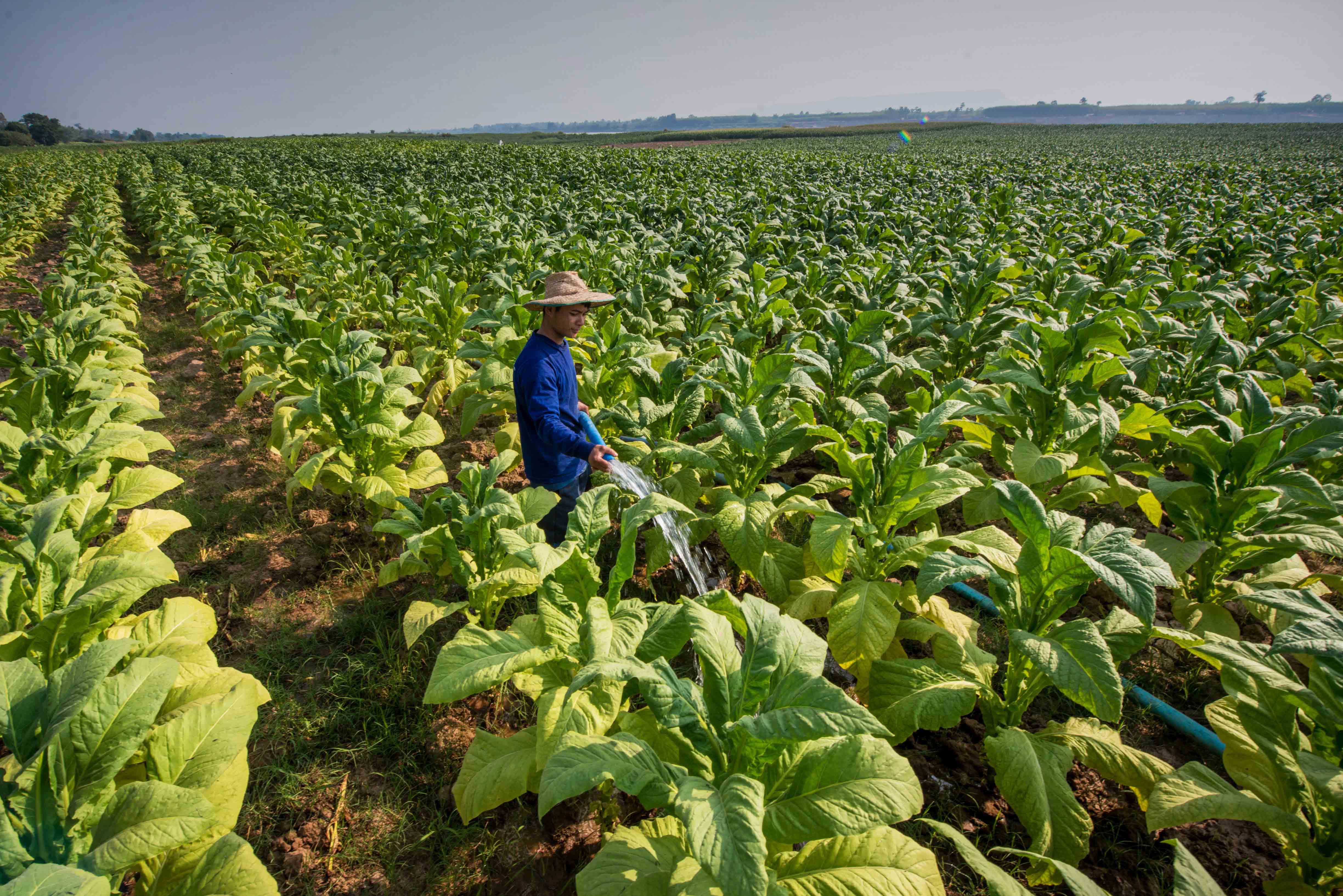Sometimes the best things are found where you least expect them.
After the discovery of the Americas, many products were transferred between the old and new worlds. One of the goods with the longest-lasting legacy is tobacco. Making their way to Southeast Asia on trade ships, the plant took root and became a popular cash crop in areas with ideal soil and rainfall, conditions which were embodied by the Mekong river basin of central Laos.
At the forefront of this legacy, stands Deputy Managing Director of Lao Tobacco Limited, Khamphoumy Keophengsy. Mr. Khamphoumy studied economics in Russia in the 1980s and has been working with Lao Tobacco Company, originally as a leaf technician and now as Deputy Managing Director of HR and Leaf Growing, tells us of the industry’s history.
Throughout its history in Laos, smallholder farms had been growing the plants for personal use and in rituals. The smoke also proved to be an enormously effective repellent against insects, which greatly aided farmers as they worked in the fields, especially during the monsoon season. Commercial farming of tobacco was introduced in the 1950s by the French, which helped build it into an export commodity.
Soon after, the country’s first tobacco company, Bolisat Yasoub Lao, was established by a Chinese businessman in 1958. This remained the only tobacco company through the war years. In 1981, the company was rebranded as Lao Tobacco Company. It was at this time that it began experimenting with different mixtures of locally grown and imported tobacco, creating several trademarked varieties of products.
A great leap forward was achieved in 2001, when the company became a joint venture between the Lao Government and Coralma International (France) and S3T (Singapore), with the primary focus being to lift rural farmers out of poverty by growing successful cash crops.
Mr. Khamphoumy tells us that twenty years ago, there were approximately 300 families producing 600 tonnes of tobacco per year. Today, country’s entire output has grown fivefold with Lao Tobacco on track to purchasing 1700 tons alone, supporting many local farming famlies in the process.
“We have built very supportive and strong relationships with the best farmers in Laos across eight different provinces,” Mr. Khamphoumy continues.
“They now produce the best tobacco here, so we no longer have to import it from elsewhere.”
By Francis Savankham



 ລາວ
ລາວ
